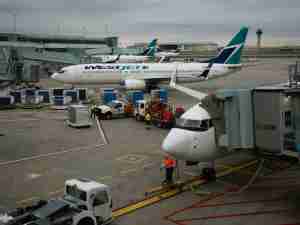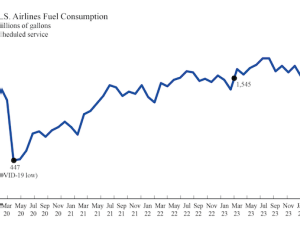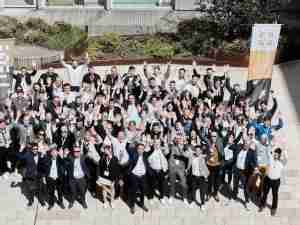The National Alliance to Advance NextGen is composed of nearly 100 organizations representing millions of people.' It called for an FAA Reauthorization Bill that includes the billions of dollars necessary to advance, install and operate NextGen technology as quickly as possible, and to do so in the New York metropolitan region first to provide the most widespread benefit, as studies have shown that 75% of the nation's air traffic delays have their genesis at one of the region's airports.
As part of the FAA Reauthorization Bill, NextGen ' an advanced GPS system that helps air traffic controllers move more aircraft more efficiently ' will need a long-term, multiyear commitment from Congress and the administration.' Total funding is expected to require $8 billion to $10 billion for the first 10 years, and $15 billion to $22 billion through 2025.
New York Governor David A. Paterson said, 'NextGen technology will usher in a new era of efficiency and profitability for the airline industry, and I urge the federal government to fully fund its implementation.' During a time of unprecedented economic challenges, we cannot afford to have one of our state's and our country's key industries hampered by delays.' As a matter of convenience, as a matter of economics and as a matter of safety, we must bring air traffic control into the 21st century.'
New Jersey Governor Jon S. Corzine said, 'Embracing 21st century technology is key for numerous reasons, first and foremost being the safety and comfort of air travelers coming into our nation's airports.' And considering that airports in New Jersey and New York serve as a gateway to the nation's commerce, there is a real national interest in getting this system implemented as soon as feasible."
'Every day that passes without federal action on NextGen costs our region time, money, and a competitive edge,' Port Authority Chairman Anthony R. Coscia said.' 'We're spending billions to upgrade our terminals and runways and we're counting on the federal government to match our commitment by overhauling the 1950s-era air traffic control system.'
'Flight delays are hurting our economy at a time when we can least afford it. 'There are no panaceas to this problem, but NextGen is as close as they come and we all must urge the federal government to implement it immediately,' Port Authority Executive Director Chris Ward said.
'It's unacceptable to have an air traffic control system in 2009 that continues to rely on technology developed in the first half of the last century,' Port Authority Deputy Executive Director Susan Bass Levin said.' 'We've figured out a way to use global positioning satellite systems to guide cars on roadways.' It's long past the time that we did the same to move aircraft more efficiently through the skies.'
'We can accelerate the transformation of our air traffic control system or risk losing our leadership role in global aviation,' said Air Transport Association President and CEO James C. May. 'The FAA and Congress must accelerate NextGen now in order to achieve the economic and environmental benefits deserved by passengers, shippers, our communities, and our country.'
NextGen will reduce air traffic congestion by utilizing satellite communication technology to inform air traffic controllers and pilots of the exact location of aircraft. The technology works like an advanced GPS system to help air traffic controllers space aircraft adequately, utilizing digitally broadcast information about each aircraft's position, altitude, direction of movement, and horizontal and vertical speed. This information is combined with overlays of weather conditions and topographic maps to produce detailed pictures of the surrounding airspace. Air traffic controllers and pilots can move aircraft i








